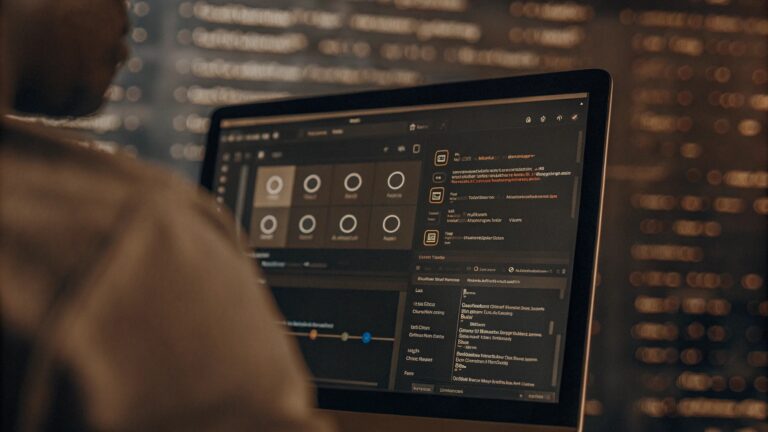Icy Issues? Your Ultimate Guide to Mastering Heating Repairs!

A functioning heating system helps maintain comfortable temperatures in your house during the winter. Professional heating repair services can help you keep your heating system operating efficiently and effectively, fixing problems such as malfunctioning thermostats, pilot lights, and ductwork.
Here are some common heating issues to repair and how a professional addresses them:
Refrigerant Leaks
Refrigerant leaks are a common issue that can affect the efficiency and functionality of your heating system.
A leak in the refrigerant line can cause your heating system to work harder and consume more energy, resulting in higher utility bills.
Leaks may be caused by corrosion, damage to the line, or faulty installation. Ice formation on the coils or decreased heating performance are signs of refrigerant leaks.
To fix a refrigerant leak, a professional HVAC technician will need to identify the source of the leak and repair or replace any damaged parts. They will also need to recharge the refrigerant levels in your heating system. Regular maintenance and inspections can help prevent refrigerant leaks, safeguarding your heating system.
Thermostat Glitches
A thermostat serves as the control center for your heating system, allowing you to set and maintain the desired temperature in your home.
When a thermostat glitches or malfunctions, it can cause inconsistent temperatures. This may increase your energy bills and decrease your home’s comfort level.
Some common signs of a faulty thermostat include inaccurate temperature readings and unresponsive buttons or switches.
Professional heating repair services help diagnose and fix thermostat issues by checking the electrical wiring, looking for malfunctioning components, and verifying temperature calibration settings.
They can also guide you in selecting a suitable replacement for your home’s heating system, such as a smart technology thermostat.
Filter Clogs
Filters trap dust, dirt, and other particles to prevent them from entering your heating system. When filters get clogged, it restricts airflow and puts extra strain on your heating system. This can lead to poor indoor air quality.
Regularly checking and changing your filters helps maintain good air quality. The frequency of changing filters depends on the type and location of your heating system. If you have pets in your home, you may need to change filters more often.
An HVAC technician can help you determine a suitable schedule for replacing your filters based on your specific needs.
Mechanical Wear and Tear
The mechanical parts of an HVAC system experience wear and tear due to age, usage frequency, and environmental conditions. This often leads to problems with heat control.
As parts wear out, they may not function as efficiently as before, leading to increased energy consumption and higher utility bills.
Regular maintenance by a professional HVAC technician can help identify and address signs of mechanical concerns. The technician can lubricate motors and bearings, tighten electrical and mechanical connections, and clean coils and fans to prevent excessive wear.
Unusual Noises
Rattling, banging, squealing, or screeching noises can indicate loose parts, worn belts, or other mechanical issues within the system. These unusual noises may also indicate an imbalanced fan or motor, low refrigerant levels, or a problem with the system’s circulating compressor.
Each of these problems can cause further damage if not addressed promptly. A professional technician inspects different components of the heating system, including the furnace, ductwork, blower fan, and other relevant parts. They check for loose parts, cracked heat exchangers, and system imbalances that need to be repaired to fix the noises.
Dust Buildup
If you notice excessive dust buildup in your home, it could indicate an issue with your HVAC system. Dust and debris accumulation within the system’s ductwork can impede airflow, leading to reduced efficiency and poor indoor air quality.
A gas heating system may also produce soot and other combustion byproducts. This can accumulate in the ductwork and be distributed throughout your home. Regular cleaning of the system’s components, including the ductwork, helps prevent dust buildup and improve indoor air quality.
Pilot or Ignition Problems
Issues with the ignition system can cause intermittent or no heat and may be due to faulty components or dirt accumulation. A faulty pilot light or ignition switch can also be a sign of significant issues with the system, such as a damaged heat exchanger.
The heat exchanger is responsible for transferring heat into the air that is circulated throughout your home. A malfunctioning or damaged heat exchanger can lead to an increase in carbon monoxide levels.
Seek Professional Heating Repair Services
A heating system is a valuable investment in your home and family’s comfort. Regular maintenance and heating repairs help to improve energy efficiency, reduce significant breakdowns, and promote better indoor air quality.
If you’re experiencing warning signs like unusual noises and dust buildup, schedule a maintenance check for your home’s heating system.
Related post:






